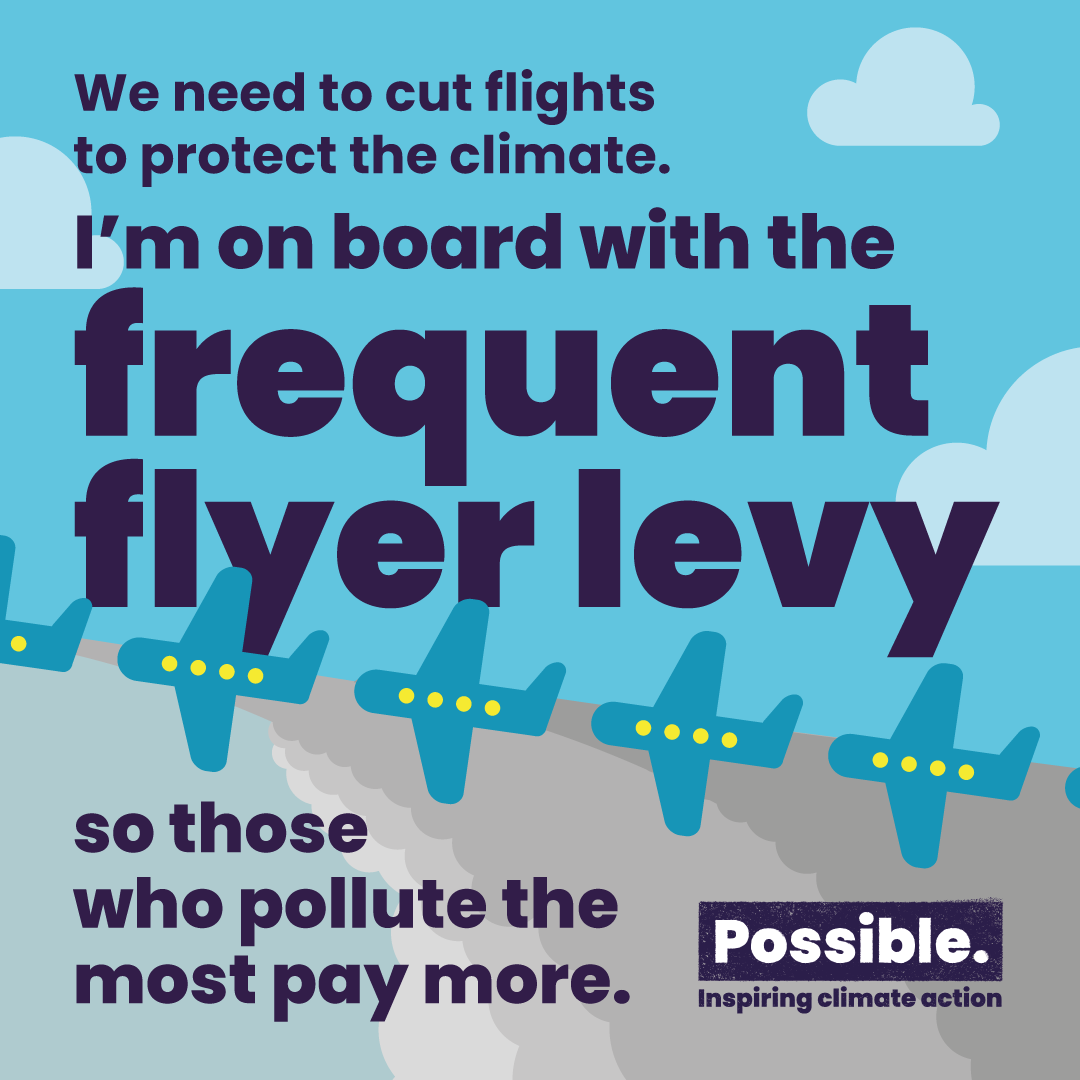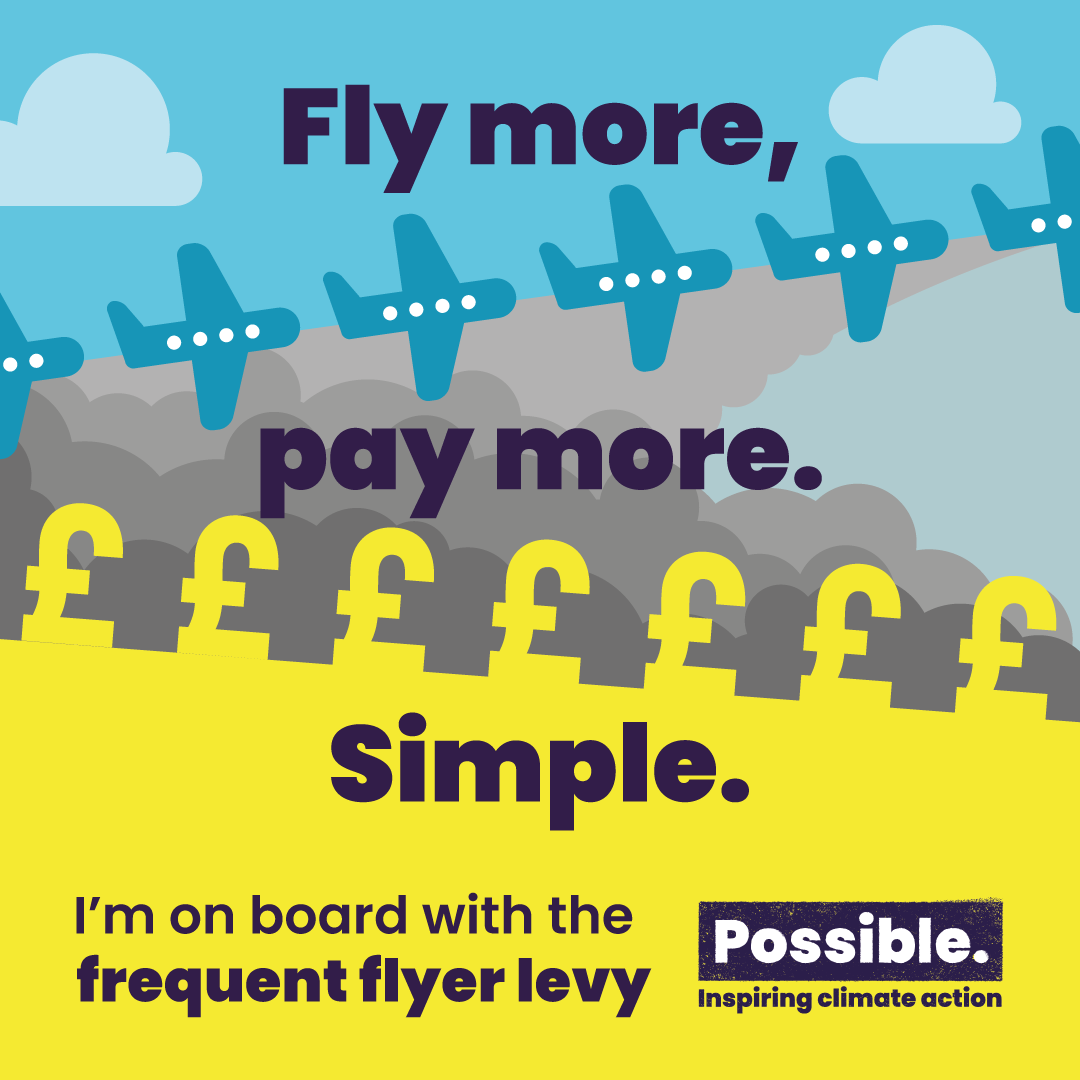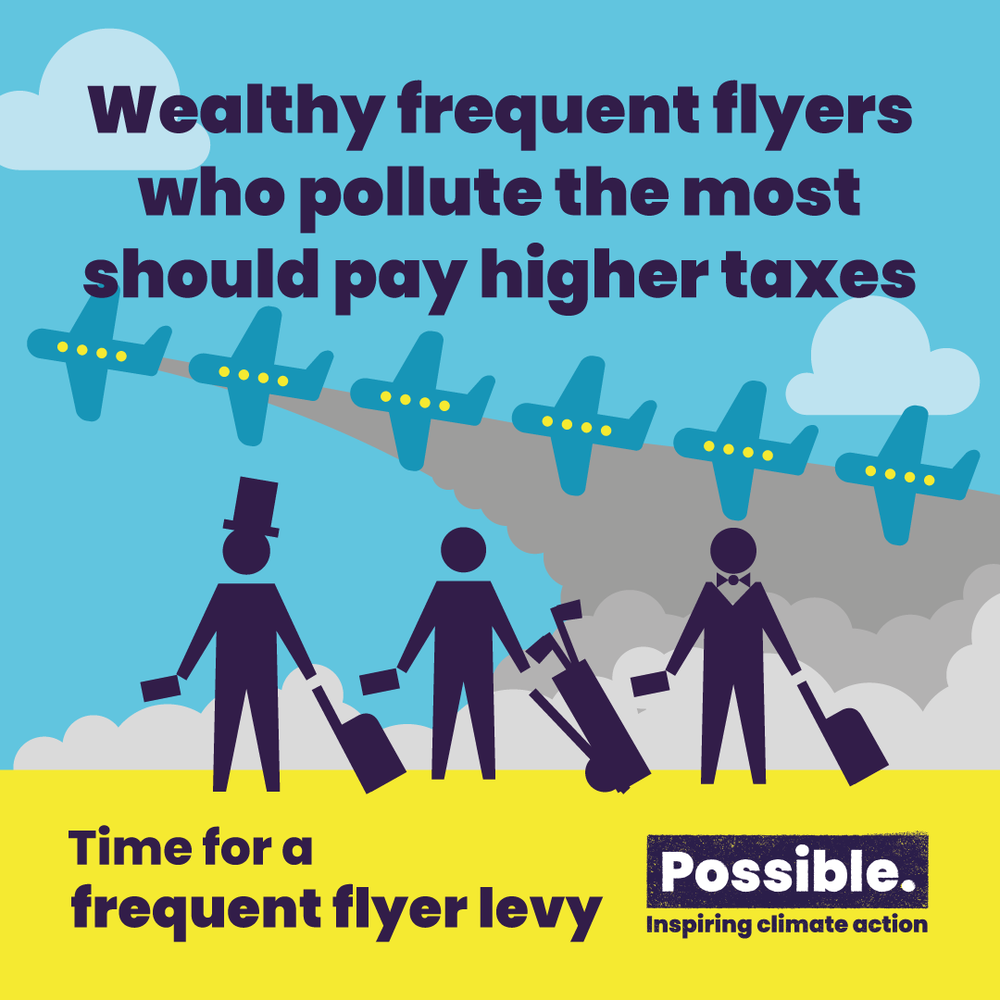The frequent flight levy: the way to make fewer flights fair for everyone.
Getting on a plane is the only way to emit tonnes of climate-crashing greenhouse gases in just a few hours. Collectively, we all need to fly less and choose ways of travelling which are better for the climate. But some people are flying a lot more than the rest of us and causing most of the environmental damage. Did you know that just 15% of people who fly frequently take 70% of all UK flights? While more than half the UK population don’t fly at all in any given year?!
Right now, it doesn’t matter if you’re flying to visit your family for the first time in years, or taking your tenth holiday abroad of the year - you’ll pay the same tax for that flight. We think that’s as unfair and backwards as a flat tax on income would be. That’s why we’re proposing a frequent flyer levy, which would be the fairest way to tax flights and the most effective way to cut emissions.
But why are we calling for this now, at a time when airline bosses are using the Covid crisis to slash jobs and push staff onto worse pay? Well, that’s because the additional tax taken from a frequent flyer levy could be used to create climate-friendly green jobs, and help former aviation workers into these roles. The frequent flyer levy would help to cut emissions in a fair way, with those who pollute the most making the biggest reductions in how much they fly, while supporting workers and creating the green jobs we need.
The problem
A small group of relatively wealthy frequent flyers take most of the flights and are responsible for most of the harm to the climate from flying. If they reduced their flying to the same level as the rest of us, that would tackle a big part of the problem of emissions from flying. Doing nothing isn’t an option: the government’s advisers on climate change have told them that overall levels of flying need to be managed for the UK to hit its climate targets. But if the government tries to reduce flights by increasing taxes by the same amount for everyone, that would make flying much more expensive for the majority of people who don’t fly very often, while having little impact on the wealthier frequent flyers causing most of the problem. We don’t think that would be fair.
We need to act fast to slow down climate change, which means sensible policies to encourage sustainable lifestyles. Unfortunately, technological solutions to allow us to fly without emitting a lot of greenhouse gases won’t be available quickly enough to solve this problem. This means we need ways to encourage people to fly less often - particularly in countries like Britain, whose citizens already take more flights abroad than the people of any other country in the world.
The solution
There is a fair way to reduce overall demand for flights. A frequent flyer levy would go up with the number of flights - or the air miles travelled - by each person, so someone taking their fourth flight of the year would pay a higher tax on that flight than someone on the same plane who hasn't yet flown that year. Think of it like income tax, which increases progressively so that people earning a lot pay tax at a higher rate than people who don’t earn much.
We agree that taxing aeroplane fuel (Kerosene) is an essential way to help control emissions from flying. But our own research with think tank the New Economics Foundation, due to be published soon, finds that there’s a problem: If taxing jet fuel is the only policy governments use to limit demand for flights by enough to hit our climate targets, prices will have to rise by so much that air travel will mostly only be available for those on higher incomes who can afford to pay more for flights. The only way we can keep overall levels of flying within safe limits, but still maintain access to some air travel for people with lower levels of disposable income, is to introduce a frequent flyer levy.
Our research also found that the frequent flyer levy would make access to air travel fairer, with those who fly most making the biggest reductions. The extra tax take it would bring in could be used to support airline workers to retrain, and create good green jobs for people currently working in aviation. It’s only fair that those who use airlines the most should help to support airline staff into less environmentally harmful careers.
Last year Possible’s director of innovation and creator of the frequent flyer levy, Leo, presented the idea to the climate assembly, which represents people in the UK’s views on climate action. Now that the assembly has called for a frequent flyer levy, it’s time for the government to act.
I'm on board with a Frequent Flyer Levy. Now what?
1. Write to your MP
To win this policy change and tackle pollution from flying, we need to get MPs on board. To do this, we need to make them realise that their constituents, as well as people across the UK, want flights to be reduced in a way that’s fair. That’s why we’ll be doing all we can to raise this in Parliament, and pushing the government to follow the assembly’s recommendation.
Can you write to tell your MP to back the frequent flyer levy?
2. Get people talking
With more and more people across the UK realising that we’re facing a climate emergency, it’s vital that they know about the solutions too. Will you start the conversation about bringing in the frequent flyer levy with your friends, family or colleagues?
We’ve created shareable graphics to get you started, but if you encounter some tricky questions you’d like a hand with, just email Hannah at hannah@wearepossible.org. She’d be happy to help.
*Don’t forget to tag us in any social media posts. For Facebook, use @wearepossibleuk. for Instagram or Twitter we’re at @_wearepossible.







